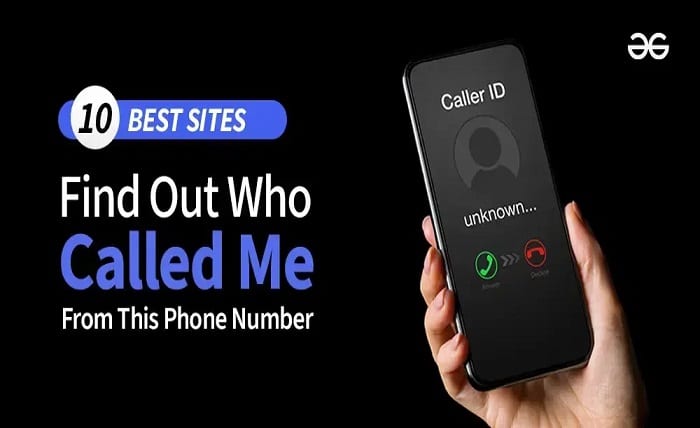Introduction
In today’s connected world, receiving calls from unknown numbers has become a common occurrence. These calls can range from legitimate business propositions to unwelcome spam or even potential scams. Understanding who’s calling you from an unknown number is not only a matter of curiosity but also of safety and privacy. This comprehensive blog post explores various methods and tools you can use to identify unknown callers, enhancing your control over personal communications.
The Rise of Unknown Callers
The frequency of calls from unknown numbers has increased with the widespread availability of mobile phones and the ease of obtaining temporary phone numbers. Companies, telemarketers, and even scammers can now reach you directly, prompting the question: “Who’s calling me from this number?”
Importance of Identifying Unknown Callers
Identifying who’s calling you is crucial for several reasons. It helps you filter out spam, avoid potential scams, and manage your time more efficiently by knowing which calls are worth answering.
How Do Spammers and Scammers Operate?
Understanding the tactics used by spammers and scammers can help you recognize suspicious calls. They often use automated systems to dial random numbers and may employ caller ID spoofing to make their calls appear more legitimate.
Utilizing Reverse Phone Lookup Services
Reverse phone lookup services are the first tool many turn to when they wonder, “Who’s calling me from this number?” These services can provide the name, address, and other details associated with a phone number.
Online Directories and Databases
In addition to specialized services, various online directories and databases allow you to search for phone number details. Often, these resources compile public records and user-submitted reports on phone numbers.
Caller ID Apps: Your First Line of Defense
Caller ID apps like Truecaller and Hiya provide real-time information about incoming calls, including the likely name and origin of the caller, directly answering the query, “Who’s calling me from this number?”
The Role of Mobile Network Providers
Some mobile network providers offer services and tools to identify and block unwanted calls. These features can be a significant asset in managing who can contact you.
Benefits of Registering on the Do Not Call List
Registering your number on a Do Not Call list can reduce the number of unsolicited calls you receive, though it may not stop all unwanted calls.
Setting Up Phone Number Blocks
Most smartphones and service providers offer options to block specific phone numbers. This feature can be particularly useful if you repeatedly ask, “Who’s calling me from this number?” about the same number.
The Impact of Social Media on Phone Privacy
Social media platforms can also be a source of privacy leaks. Understanding the connection between your social media presence and incoming calls is crucial for maintaining your privacy.
Community Forums and Feedback on Unknown Numbers
Community forums and websites that collect user feedback on phone numbers can provide insights into who might be calling you and their intentions.
Legal Aspects of Tracking Phone Calls
It’s important to be aware of the legal considerations surrounding the tracking and monitoring of phone numbers. Ensuring compliance with privacy laws is crucial.
When to Consider Changing Your Phone Number
If unwanted calls become overwhelming, changing your phone number might be a viable solution. This section discusses the pros and cons of taking such a step.
Advanced Tools and Technologies for Call Identification
For those frequently dealing with unknown callers, advanced tools and technologies offer more robust solutions, including AI-based call screening and analysis.
Conclusion
Knowing who’s calling you from an unknown number is essential in today’s digital age. By utilizing tools like caller ID apps, reverse phone lookup services, and being proactive about your phone privacy, you can significantly reduce unwanted calls and safeguard your personal information. Always remain vigilant and use the available resources to stay informed and secure.
FAQs
1. How can I find out who’s calling me from this number? Use reverse phone lookup services, caller ID apps, or online directories to identify unknown callers.
2. Are reverse phone lookup services free? Many reverse phone lookup services offer basic information for free, but detailed reports might require a paid subscription.
3. What should I do if I keep getting spam calls? Register your number with a Do Not Call list, use caller ID apps to block spam, and report persistent spammers to your phone carrier or local authorities.
4. Is it legal to use reverse phone lookup services? Yes, using reverse phone lookup services is legal as long as you use the information for lawful purposes and adhere to the terms of service of the provider.
5. How can changing my phone number help with unwanted calls? Changing your phone number can give you a fresh start, especially if your current number has been widely circulated and targeted by numerous unsolicited calls.
